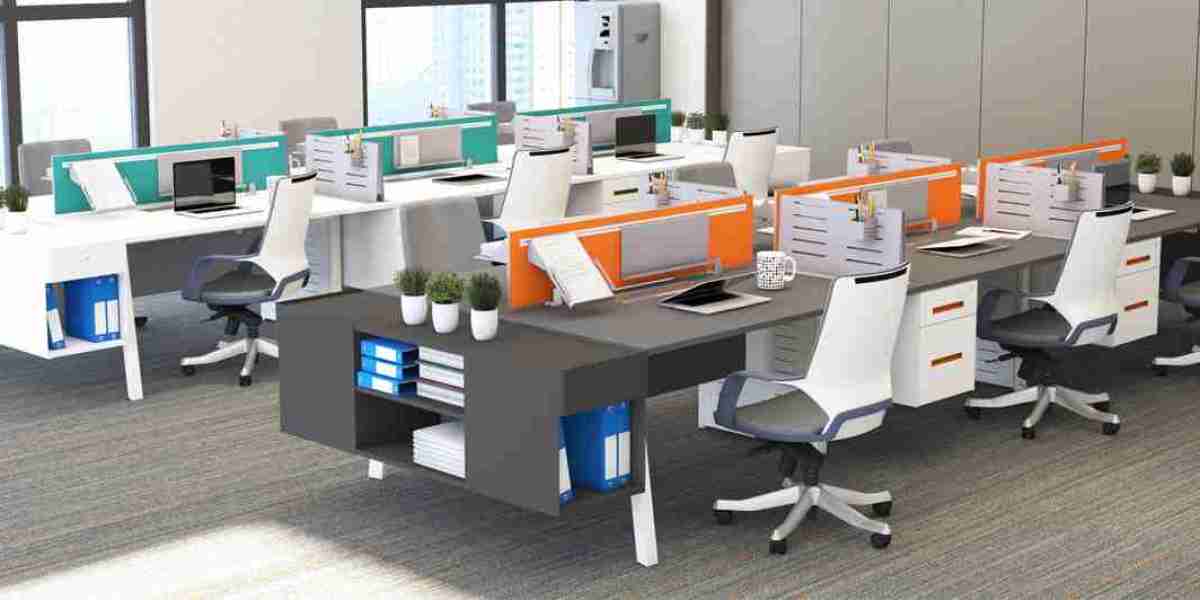Investing in office cubicles can be a significant expense, but it’s also a crucial decision for employee productivity, comfort, and workspace efficiency. Many businesses struggle with balancing cost and quality, unsure of how to choose cubicles that fit their budget while still meeting design and functionality requirements.
Why Choosing the Right Cubicles Matters
Choosing the right office cubicles affects:
Employee productivity and satisfaction
Space utilization and layout efficiency
Long-term maintenance and replacement costs
Overall company culture and aesthetics
A poorly chosen cubicle system may lead to decreased morale, wasted space, and higher costs over time, making it essential to plan carefully.
Factors Influencing the Cost of Office Cubicles
1. Size and Configuration
The larger the cubicle, the higher the cost. L-shaped or U-shaped designs tend to be more expensive than standard rectangular models.
2. Material Quality
Cubicles made from high-quality materials, such as durable laminate, tempered glass, or metal frames, cost more but last longer. Budget-friendly options often use lower-cost composites or fabric panels.
3. Features and Accessories
Adding ergonomic chairs, adjustable desks, storage solutions, cable management systems, and acoustic panels increases cost but enhances comfort and functionality.
4. Customization
Custom colors, designs, and branded elements can raise the price but may improve employee satisfaction and reinforce company culture.
5. Installation and Delivery
Some cubicles require professional installation, which adds to the total cost. Modular or self-assembled cubicles can reduce this expense.
Cost Ranges for Office Cubicles
| Type of Cubicle | Cost Range per Unit | Features |
|---|---|---|
| Basic Cubicles | $800 – $1,500 | Standard panels, minimal storage |
| Mid-Range Cubicles | $1,500 – $3,000 | Ergonomic design, adjustable desks, moderate storage |
| Premium Cubicles | $3,500+ | Custom design, high-end materials, advanced features |
Tips for Cost-Effective Office Cubicles
1. Opt for Modular Systems
Modular cubicles can be reconfigured as your business grows or needs change, providing long-term savings.
2. Focus on Essential Features
Identify which features are necessary for employee productivity and comfort, avoiding unnecessary extras that inflate cost.
3. Consider Refurbished or Pre-Owned Cubicles
High-quality refurbished cubicles can offer durability at a lower price, making them a budget-friendly alternative.
4. Maximize Space Efficiency
Design layouts that optimize floor space, such as clusters or shared walls, which allow more employees to work comfortably in a smaller area.
5. Balance Cost with Employee Experience
Cheaper cubicles may save money upfront, but prioritizing ergonomics and functionality prevents long-term issues like discomfort and turnover.
Modern Design Solutions on a Budget
Low-Partition Cubicles: Cost-effective and still provide some privacy while promoting collaboration.
Open-Top Cubicles: Reduce material costs while maintaining defined workspaces.
DIY Modular Cubicles: Simple modular systems allow businesses to assemble and reconfigure without expensive installation.
Combination Layouts: Mix premium and budget cubicles depending on the role, giving priority to high-use areas.
Benefits of Investing in Cost-Effective Office Cubicles
Higher ROI
Well-chosen cubicles improve productivity, reduce employee turnover, and save on future replacement costs.
Enhanced Productivity
Cubicles that meet ergonomic and functional needs reduce fatigue and increase focus.
Scalability
Modular and budget-friendly systems make it easier to expand as your team grows.
Employee Satisfaction
Affordable doesn’t have to mean uncomfortable. Investing in functional, well-designed cubicles improves morale.
Common Mistakes to Avoid
Buying purely based on price without considering quality or durability
Overlooking ergonomic needs for employees
Ignoring layout efficiency, leading to wasted space
Choosing complex designs that are difficult to assemble or reconfigure
FAQs About Cost-Effective Office Cubicles
Q1: Can budget cubicles be durable?
A: Yes. Choosing high-quality materials within your budget or opting for refurbished cubicles can ensure durability.
Q2: How can I save on installation costs?
A: Modular or DIY cubicle systems allow businesses to set up or reconfigure without hiring professionals.
Q3: Are smaller cubicles a cost-saving solution?
A: They can reduce initial costs, but make sure they still provide adequate space for comfort and productivity.
Q4: Is it worth investing in premium cubicles?
A: Premium cubicles make sense in high-use areas or for executives, but a mix of mid-range and basic options often balances cost and functionality.
Q5: How do modular cubicles save money in the long run?
A: They can be reconfigured as your company grows or changes, avoiding the cost of entirely new setups.
Conclusion
Choosing the right office cubicles doesn’t have to break your budget. By understanding cost factors, focusing on essential features, and leveraging modular or refurbished options, businesses can create efficient, functional, and comfortable workspaces without overspending. Smart planning ensures that cubicles support productivity, employee satisfaction, and long-term savings—making them a worthwhile investment for any office.






